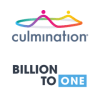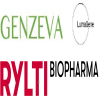Dive Brief:
- Over a two year period from 2016 through 2017, 741 federal patent litigation cases were filed related to Food and Drug Administration Paragraph IV pharmaceutical Abbreviated New Drug Applications and 196 Patent Trial and Appeal Board petitions involving Orange Book patents, a new report from LexisNexis company Lex Machina said. During that same period, 843 ANDA cases and 246 patent board pharmaceutical trials were completed.
- The districts of Delaware and New Jersey remain the top courts where companies file such suits. District court ANDA case filings were up 30% during the period, but still lower than the 2015 high of 475 cases.
- The most litigated cases in the 2016-2017 time period were for Biogen's multiple sclerosis drug Tecfidera, Bristol-Myers Squibb and Pfizer's anticoagulant Eliquis and Amgen's hyperthyroidism drug Sensipar.
Dive Insight:
The litigation reflects the ongoing struggle between branded drugmakers and their counterparts aiming to bring generic copies forward.
FDA Commissioner Scott Gottlieb has made a point over the last year to push more generics, complex generics and biosimilars through the regulatory framework to create more market competition, with the hope of lowering drug costs.

"[T]he balance between innovation and access is also the foundation of Hatch-Waxman and the FDA’s generic drug program. This is where FDA’s efforts come into play," said Gottlieb during a keynote address on May 3 at the 2018 Food and Drug Law Institute Annual Conference.
"Incentives to innovate, such as patents and statutory exclusivities, are balanced against abbreviated pathways for follow-on products that can enter the market once the innovator’s period of lawful monopoly no longer blocks approval. This is true for small molecules and biologics. Last year, nearly 90 percent of all prescriptions in the U.S. were filled with lower cost, generic drugs," he added.
ANDA filers are required to inform the branded drugmaker of their intent to bring a copycat drug to market. Then, the originating company has 45 days to file a lawsuit that could keep the generic off the market for an added 30 months. These trials can be costly and time-consuming. According to the report, it took more than four years, on average, for the majority of cases heard in the districts of Delaware and New Jersey to be terminated.
Yet, more than 50% of these cases end in settlements, with the report pointing out that claimants more often came out on top.
Eli Lilly, Pfizer, Sanofi, Allergan and Bristol-Myers Squibb led the list of most cases as plaintiffs over the two-year period, while Teva Pharmaceuticals, Mylan Pharmaceuticals, Apotex, Aurobindo and Zydus Pharmaceuticals were most often the defendants.










